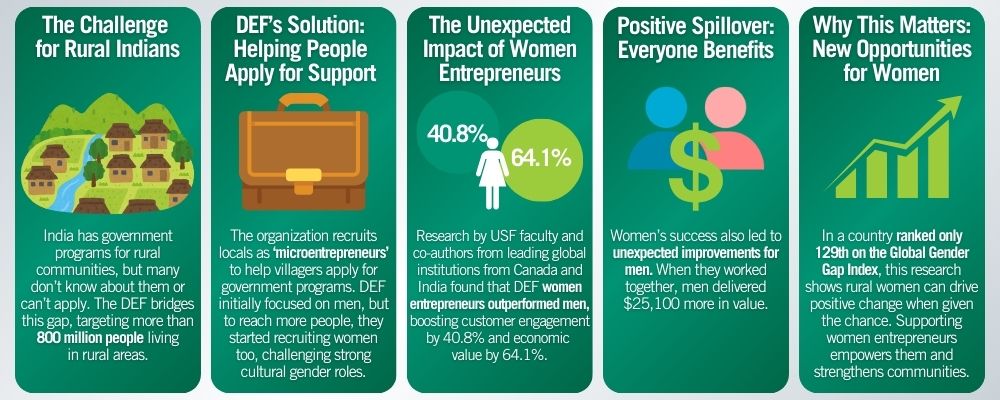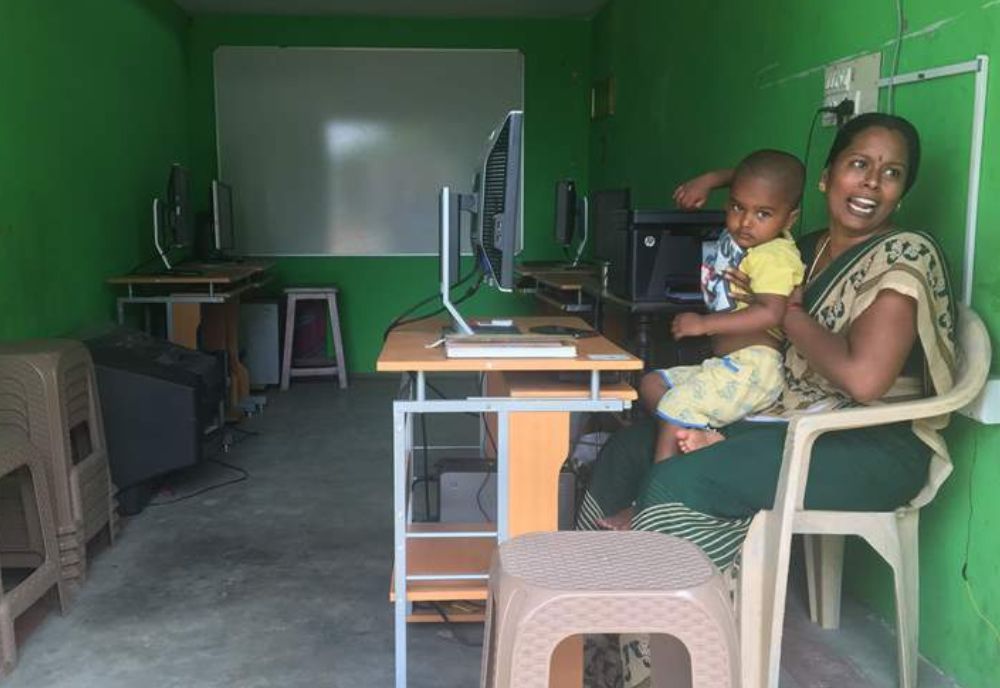TAMPA — In remote villages across India, the Digital Empowerment Foundation (DEF) is transforming lives by helping women become microentrepreneurs. A recent study of DEF’s impact was conducted by AJ Chauradia, PhD, from the University of South Florida Muma College of Business, along with co-authors from leading institutions. The study reveals the positive impact of employing rural women as microentrepreneurs compared to their male counterparts.

AJ Chauradia
DEF’s program recruits and equips locals to help their communities access public welfare services offered by the Indian government. Historically dominated by men, DEF has focused on recruiting women to promote inclusivity.
Chauradia’s co-authored article, “Rural women microentrepreneurs, consumer acquisition, and value delivery: Evidence from a quasi-experiment in rural India,” was recently published in the Journal of the Academy of Marketing Science. The study provides a comprehensive look at how women are leveraging DEF to overcome socioeconomic and cultural barriers to create sustainable economic and social value.
Key Findings:
- Impact of DEF: Women microentrepreneurs recruited by DEF show a 40.8% increase in customer engagement and a 64.1% rise in economic value delivered compared to men microentrepreneurs.
- Women Supporting Women: Rural women microentrepreneurs better understand and empathize with the experiences of rural women consumers, who are more comfortable sharing personal challenges with them. These microentrepreneurs use this insight to help clients maximize benefits from government programs.
- Inclusive Economic Environments: Men working alongside women in these inclusive environments also deliver greater economic value than those in male-dominated settings. Through their collaboration with women microentrepreneurs, they gain a deeper understanding of the importance of social service, realigning their focus to meet the community’s expectations and norms.

This infographic explains the study.
Implications
The study emphasizes the importance of gender-inclusive initiatives that provide digital and localized support to rural women, driving economic growth and promoting gender equity in traditionally patriarchal rural settings. Empowering rural women entrepreneurs is shown to be a powerful tool for sustainable economic development and social transformation, offering a pathway to address deep-rooted gender disparities.
The research team collected quantitative data from 285 microentrepreneurs and conducted qualitative interviews with 28 microentrepreneurs and consumers across multiple locations in rural India. The study’s co-authors include Aindrila Chatterjee from the Institute of Management Technology in Hyderabad, India, and Kiran Pedada from the University of Manitoba, highlighting a collaborative effort to advance understanding in social entrepreneurship and digital empowerment.
For further inquiries, contact AJ Chauradia at ajchauradia@usf.edu
